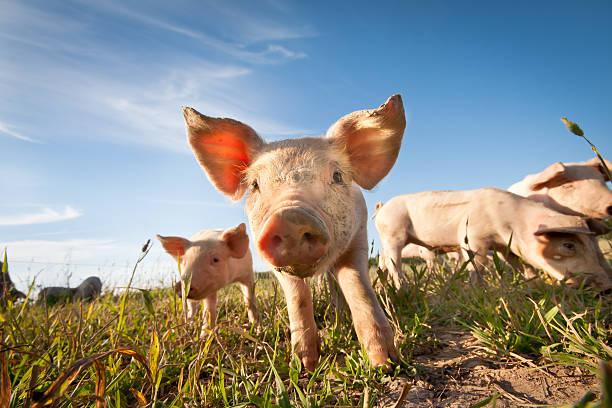"Decoding the Remarkable Intelligence of Pigs"
The common pig, often underestimated, is an intriguing creature of remarkable intelligence and complex emotions. This article embarks on an enlightening journey into the world of these fascinating mammals, debunking myths and breaking down their unique capabilities.

A Historical Perspective
Pigs, or swine, have been domesticated for over 9,000 years, primarily for food. Ancient cultures, such as the Egyptians and Romans, revered pigs for their fertility and as symbols of wealth. Despite this, pigs have often been depicted negatively in literature and folklore, leading to widespread misconceptions about their intelligence and behavior. Interestingly, recent studies and observations have challenged these myths, revealing pigs as highly intelligent, emotional, and social animals.
Scrutinizing Swine Intelligence
Research in the late 20th century began to uncover the remarkable cognitive abilities of pigs. Scientists discovered that pigs are capable of remembering objects, learning from observation, solving puzzles, and even playing video games. Furthermore, pigs display emotions and show empathy towards their peers, traits that were once thought to be exclusive to primates and humans. This shift in understanding has led to calls for a reevaluation of how we treat and perceive these intelligent creatures.
The Market Impact of Pig Intelligence
The growing awareness of pig intelligence has had a significant impact on the market. The demand for ethically-farmed pork products has increased, leading to higher prices but also encouraging more humane farming practices. Some consumers have also turned to plant-based alternatives, contributing to the rise of the vegan and vegetarian market. Additionally, a niche market for pet pigs has emerged, with certain breeds, such as the Miniature Potbelly pig, priced between $600 and $1,000.
Current Developments in Pig Intelligence Research
In recent years, research into pig intelligence has continued to evolve. A study published in 2021 found that pigs can understand reflections in mirrors, an ability that is considered a sign of self-awareness. Other ongoing research aims to delve further into pigs’ emotional lives and their capacity for empathy. These developments not only enrich our understanding of pig intelligence but also raise important ethical questions about animal welfare.
The Way Forward
As we continue to learn about the remarkable intelligence of pigs, it’s clear that our relationship with these animals needs to evolve. From farming practices to our dietary choices, acknowledging the cognitive and emotional complexity of pigs necessitates change. As consumers and animal lovers, we have a crucial role to play in promoting the welfare of these intelligent creatures.
In conclusion, pigs are far more than just a source of food. They are intelligent, emotional beings with complex social structures. By understanding and respecting their intelligence, we can foster a more ethical and compassionate relationship with these remarkable animals.






